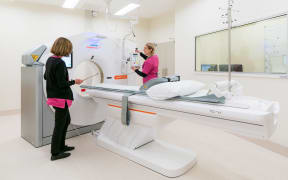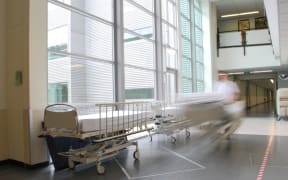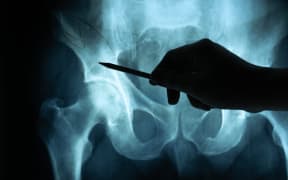Hospital specialists around the country say they're "suffering" and warn public hospitals have reached a tipping point.

Photo:
A new report, Hospitals on the Edge, by the Association of Salaried Medical Specialists (ASMS) has found burnt-out senior doctors and health staff are overworked, and confronting a crisis.
The report states acute hospital admissions and Emergency Department use is growing at more than twice the rate of population growth.
ASMS national president Murray Barclay said "staff feel desperation about the unceasing pressures to cope with hospital workloads."
Prof Barclay said the the Ministry of Health must start listening to senior doctors and addressing the crisis, instead of minimising it.
The report found about 430,000 children and adults had unmet needs for hospital care.
ASMS executive director Ian Powell said this was the most dire state he had seen hospitals in during more than 30 years of work.
"This is the worst I have seen the system and particularly public hospitals. It's a crisis. It's through successive governments' neglect and failing to provide leadership."
Specialists shared their experiences in the report:
- "There was a stage earlier in the year when I cried on the way to work - I was just not looking forward to the workload I was going to face" - pathologist/ haematologist
- "We've had exponential increases in patient volumes over the past five years but there's been no increase in FTE on the consultant or nursing side so effectively we're being asked to just work harder" - ED specialist
- We're cancelling theatre lists routinely due to lack of staff and bed capacity. Short notice stress leave has become more frequent" - surgeon
Prof Barclay said women were facing burn out and bullying more than male specialists - and inaction would only cause the situation to deteriorate further.
Mr Powell said there was a 24 percent shortage of hospital staff within 15 out of 20 district health boards (DHBs).
He said over-management and a power imbalance within some DHBs had led to health failures in some regions.
There is a drastic need to hear from people on the ground for productive, effective, and lasting change to come about, he said.
The report asked the government to take action by addressing staff shortages and integrating primary and secondary services as well as investing more into the sector overall.
The Ministry of Health has been approached for comment.







